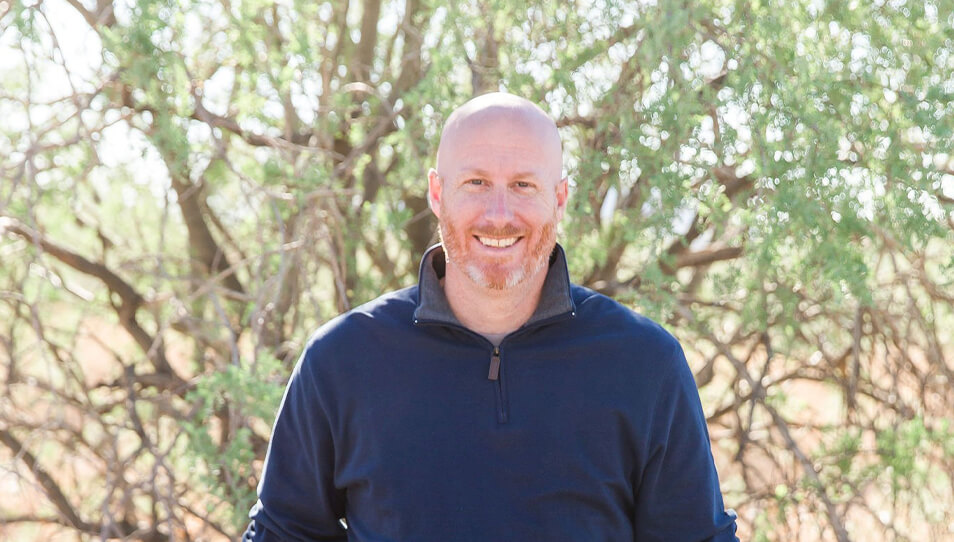Supporting CKD Patients on the Journey to Kidney Transplant
In the value-based model of care, patients with late-stage CKD receive ongoing and in-depth support from their care team. The care team advocates for them, and paves the way to transplant and the search for a living donor.
tags

Donating a kidney is the most impactful way to help someone with late-stage kidney disease live their best life, and a pre-emptive transplant prior to kidney failure is the gold standard.
Kyle Oldfield, a senior implementation manager at Interwell Health, received a kidney from his cousin and avoided dialysis. He says the key was early identification of his chronic kidney disease (CKD) and education about his options.
“When I first received my CKD diagnosis, it was communicated to me that I might have ten years before I would need a transplant. This gave me plenty of time to share my story. When the time for transplant arrived, I had already put the word out to my friends and family to educate them about my situation, how avoiding dialysis would impact my life.”
In a value-based model of care, patients with late-stage CKD can receive ongoing and in-depth support from nurses and social workers who understand all treatment options including transplant. They become advocates for patients, and champions on their path to transplant eligibility and the search for a living donor.
One patient in her late 60s worked with the Interwell care team for more than a year in her effort to hold off kidney failure for as long as possible. She was placed on the transplant waiting list while also searching for a living donor.
“We provided a dietitian, support from a social worker, and followed her closely on her entire journey,” said Keisha Ventura, an Interwell nurse who spent many hours counseling the patient on her kidney health. “She was taking care of herself and doing everything right. When she crossed to stage 5, she said she still did not feel bad, and was reluctant to prepare for dialysis.”
Ventura eventually convinced her about the importance of having a permanent access ready prior to needing dialysis and an appointment was scheduled. But instead of going in for an access procedure, she ended up in the hospital. Ventura soon found out the reason. She had just received a new kidney off the transplant waitlist.
“We were overjoyed and incredibly excited. I talked to her a few weeks after the surgery and had a wonderful conversation.”
Partnering with Nephrologists
The more closely aligned the patient’s nephrologist, the more likely a positive outcome will follow. Often, the first step is simply working with patients to ensure they have been referred to and are actively seeing a nephrologist.
Our renal care coordinators help patients make connections to local transplant centers, evaluate insurance eligibility, and work with patients to improve their health so that they can receive a transplant.
The wait for a kidney on the transplant list can be long, often 3-5 years. While more transplants are happening than ever before, it can be a challenging process.
“Transplant is the best treatment for patients with kidney failure, but it’s not always an easy path,” said Dr. George Hart, Interwell Health’s chief medical officer who was a transplant nephrologist for more than 30 years. He has seen firsthand how value-based care is helping more patients receive this gift of life.
“We work with an aligned team of nephrologists, often with an embedded renal care coordinator that is part of the value-based care program. That coordinator works directly with patients to ensure all the right education is provided and necessary paperwork is taken care of. The key is to ensure no one falls through the cracks.”
Renal care coordinators help patients make connections to local transplant centers, evaluate insurance eligibility, and make suggestions for when a family member or friend wants to donate a kidney but are not a perfect match. In some cases, an exchange is possible with another living donor.
Even if a medical evaluation determines that steps need to be taken before the patient is eligible for transplant, the care team, including renal dietitians and social workers, work with patients to improve their health so that they can receive a transplant.
Living their Best Lives
New medications and changes in how prescription drugs are covered by insurance, especially Medicare, has made receiving a transplant an easier choice for the thousands of people in need and waiting for this chance.
Over 1 million kidney transplants occurred in 2022, a record, but around 90,000 people remain on the list, which is why living donation is such a great option.
“Since I was able to get a transplant before requiring dialysis, I never had to make any changes to my lifestyle, such as taking time away from work and my family,” said Oldfield.
People with a pre-emptive transplant may never experience dialysis. If all goes well, the patient takes care of the kidney, and sticks to a regimen of anti-rejection medication, a new kidney can last 15-20 years. That is many years of new life.
“I am thankful that I can do what I love and be around for my kids as they are growing up. Education really is key, and early intervention can have a significant impact on someone’s life.”